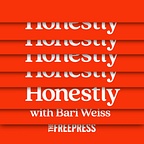In the 1972 presidential election, Democratic candidate George McGovern was soundly defeated by Richard Nixon. It was a bloodbath. He lost 49 states, a result widely attributed to his positions being “too liberal” for the American mainstream.
Four decades later, in a more liberal America, McGovern released a book called What It Means to Be a Democrat, ou…
Continue Reading The Free Press
To support our journalism, and unlock all of our investigative stories and provocative commentary about the world as it actually is, subscribe below.
$8.33/month
Billed as $100 yearly
$10/month
Billed as $10 monthly
Already have an account?
Sign In
Make a comment



